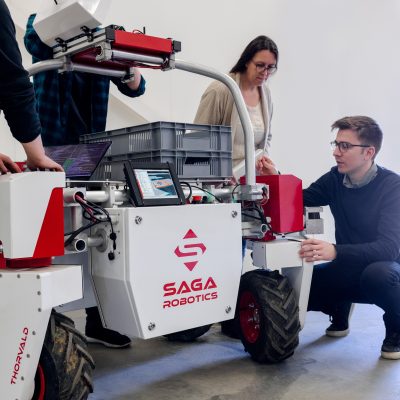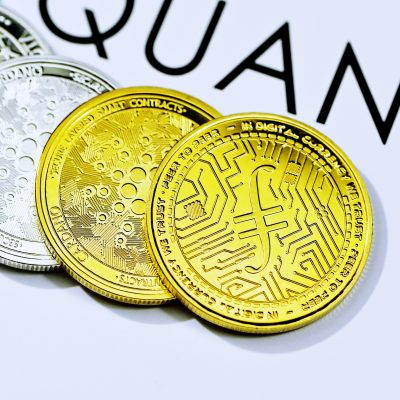Welcome to the world of green technology! In this rapidly evolving era, where sustainability is becoming more critical than ever, green technology offers a glimmer of hope for a better future. It’s time to embrace innovative solutions that not only protect our environment but also pave the way for economic growth and social well-being. From renewable energy sources to eco-friendly transportation options, there are countless exciting developments happening in the realm of green technology. So buckle up and join us on this journey as we explore the fascinating world of sustainable innovations and their potential impact on our planet!
What is Green Technology?
Green technology, also known as sustainable technology or clean technology, refers to the development and application of innovative solutions that minimize environmental impact while promoting economic growth. It aims to create a balance between human needs and the preservation of our planet’s resources for future generations.
One major aspect of green technology is energy efficiency. This involves using technologies that consume less energy or produce renewable energy sources like solar or wind power. By implementing these technologies in industries, buildings, and transportation systems, we can significantly reduce greenhouse gas emissions and combat climate change.
Another important area of focus is waste management. Green technology offers sustainable solutions for recycling and waste treatment processes, reducing pollution levels and conserving natural resources. From advanced recycling techniques to biodegradable materials, these innovations are revolutionizing how we manage waste.
Transportation is also being transformed by green technology initiatives. Electric vehicles (EVs) are becoming increasingly popular due to their reduced carbon footprint compared to traditional gasoline-powered cars. Additionally, advancements in battery storage technologies are making EVs more efficient and affordable.
The agricultural sector is not lagging behind either when it comes to embracing green technology practices. Vertical farming systems use hydroponics or aeroponics techniques to grow crops without soil while minimizing water usage. These methods allow for year-round production with fewer pesticides and herbicides required.
In conclusion,
Green Technology encompasses a wide range of sustainable solutions aimed at addressing environmental challenges while fostering economic growth. Through advancements in energy efficiency, waste management practices, transportation innovations like electric vehicles, as well as agricultural techniques such as vertical farming – we are moving towards a cleaner future where sustainability becomes the norm rather than an exception.
Current Green Technology Initiatives
Green technology is continuously evolving as the need for sustainable solutions becomes more urgent. In recent years, there have been several exciting initiatives that are making a significant impact on our environment.
One such initiative focuses on renewable energy sources. Solar power has gained immense popularity as an alternative to fossil fuels. The development of efficient and affordable solar panels has made it possible for individuals and businesses alike to harness the power of the sun.
Another area of green technology innovation lies in transportation. Electric vehicles (EVs) are becoming increasingly popular due to their reduced carbon emissions compared to traditional gasoline-powered cars. With advancements in battery technology, EVs now offer longer ranges and faster charging times, making them a viable option for many consumers.
In addition to energy and transportation, green technology is also being applied in building design. Sustainable architecture aims to create buildings that minimize energy consumption through features like passive heating and cooling systems, efficient insulation, and the use of renewable materials.
Furthermore, waste management is another crucial area where green technology initiatives are making strides. Recycling programs have become more widespread, diverting tons of waste from landfills each year. Additionally, innovative technologies are being developed to convert organic waste into biogas or compost through anaerobic digestion processes.
Smart grids are revolutionizing how we manage our electricity supply by utilizing advanced monitoring systems and automated controls. These grids allow for better integration of renewable energy sources while optimizing overall efficiency.
These current green technology initiatives provide hope for a cleaner future by reducing our carbon footprint and promoting sustainability across various sectors of society.
The Future of Green Technology
As we look ahead to the future, it is clear that green technology will play a vital role in shaping our world for the better. With increasing awareness and urgency around climate change and environmental sustainability, there is a growing need for innovative solutions that can help us mitigate these challenges.
One exciting area of development is renewable energy sources. We have already witnessed significant advancements in solar power, wind turbines, and hydroelectricity. However, researchers are now exploring groundbreaking technologies such as tidal energy harnessing and geothermal power generation. These innovations hold immense promise for providing clean and sustainable energy on a massive scale.
Another promising aspect of green technology lies in transportation. Electric vehicles (EVs) are becoming increasingly popular due to their lower carbon emissions compared to traditional gasoline-powered cars. As battery technology continues to improve, EVs will become more efficient with longer ranges while also reducing reliance on fossil fuels.
In addition to renewable energy and transportation innovations, smart cities are emerging as another key focus area for green technology. By integrating digital connectivity into urban infrastructure systems like water management, waste disposal, and public transportation networks, smart cities aim to minimize resource consumption while maximizing efficiency.
Moreover, advancements in building materials and design are enhancing sustainability efforts in the construction industry. Green buildings incorporating features such as passive heating/cooling systems, efficient insulation materials, rainwater harvesting techniques, and recycling facilities not only reduce environmental impact but also contribute to healthier living environments.
While these developments offer great promise for a greener future ahead of us; however; there remain challenges that must be addressed along the way – from cost considerations to regulatory frameworks supporting widespread adoption of green technologies globally.
Nonetheless; it is evident that the potential benefits far outweigh any obstacles we may encounter along this journey towards sustainable solutions; by embracing green technology initiatives today – we can lay the groundwork for a cleaner environment tomorrow!
So let’s continue pushing boundaries; investing in research and development; and supporting policies that promote the growth of green technology. Together,





